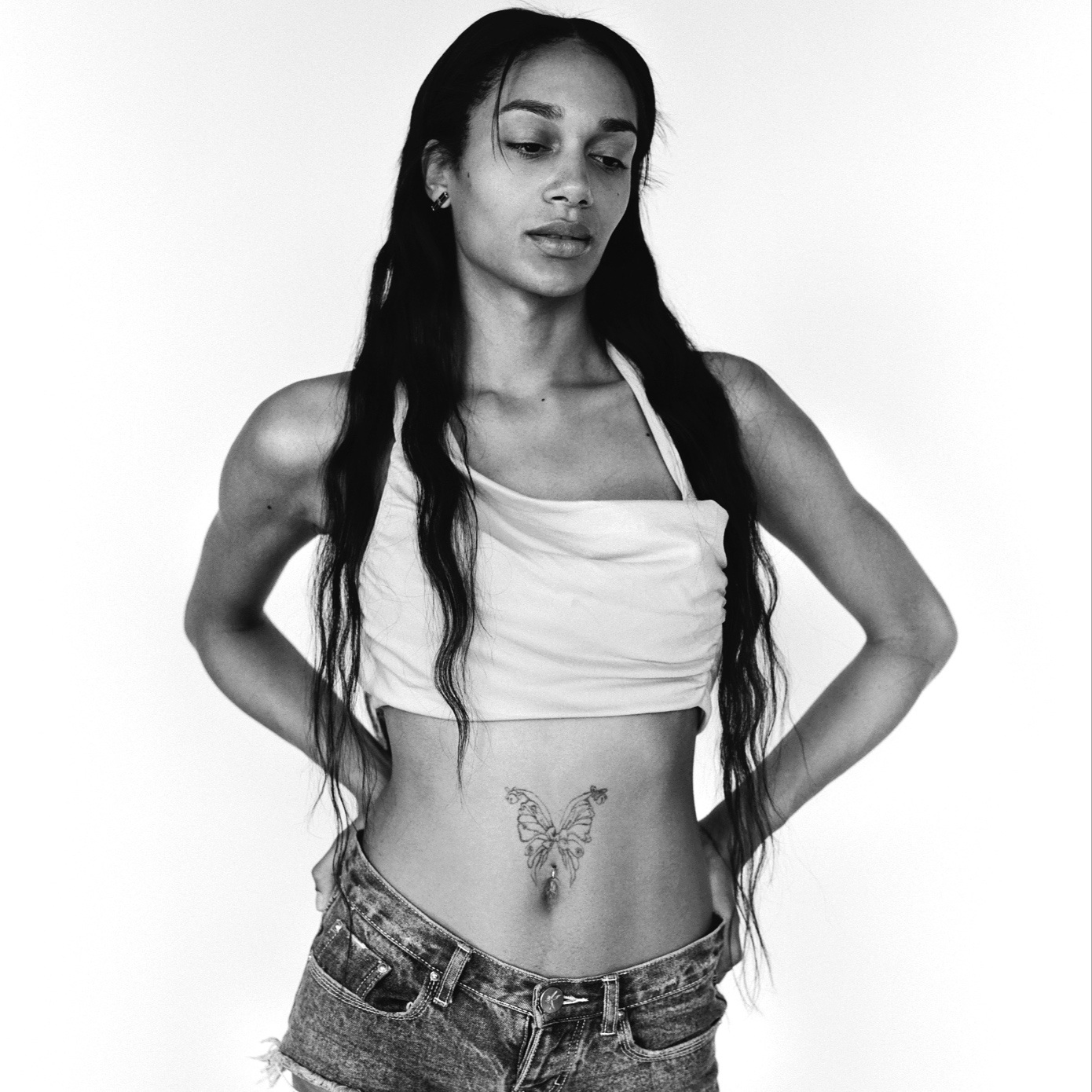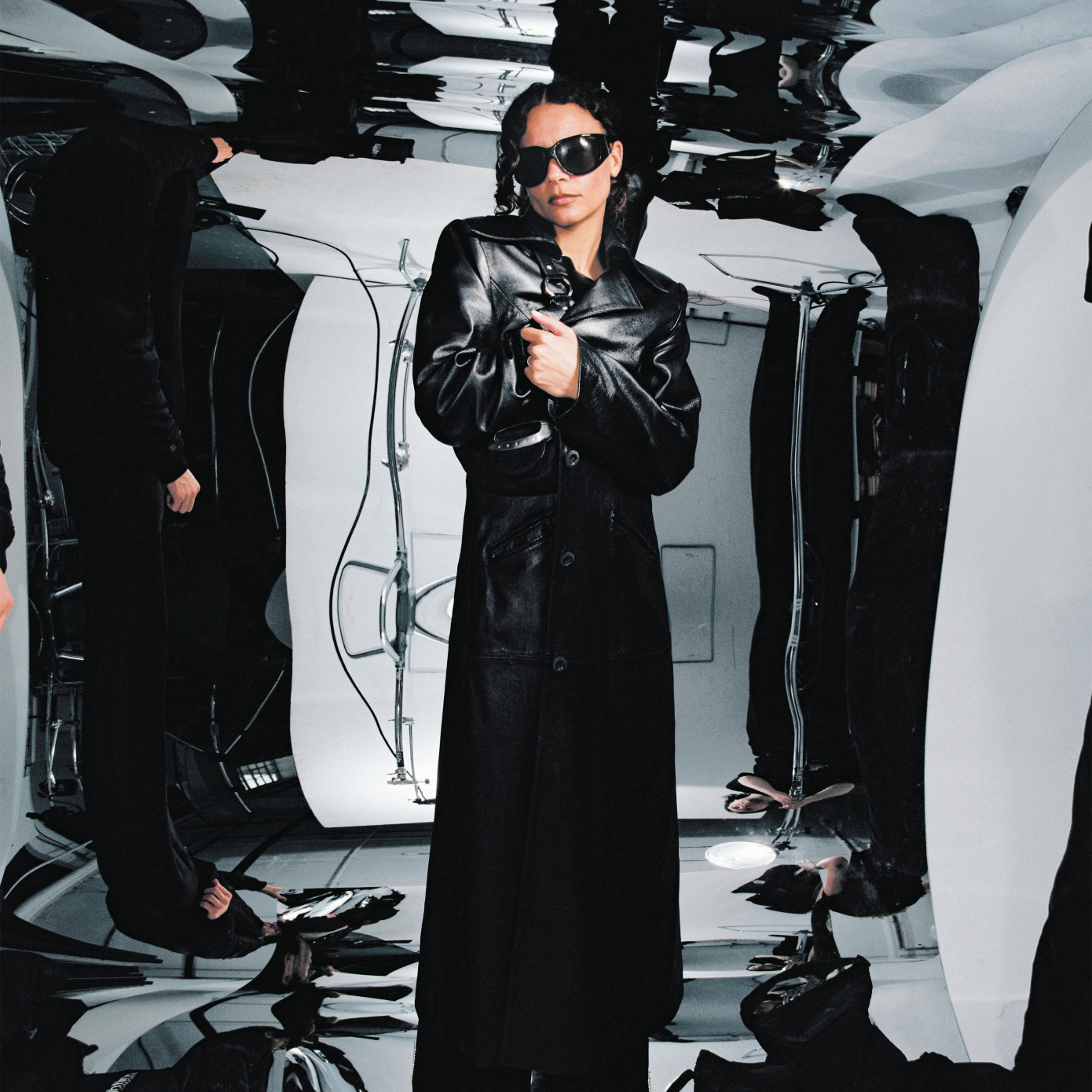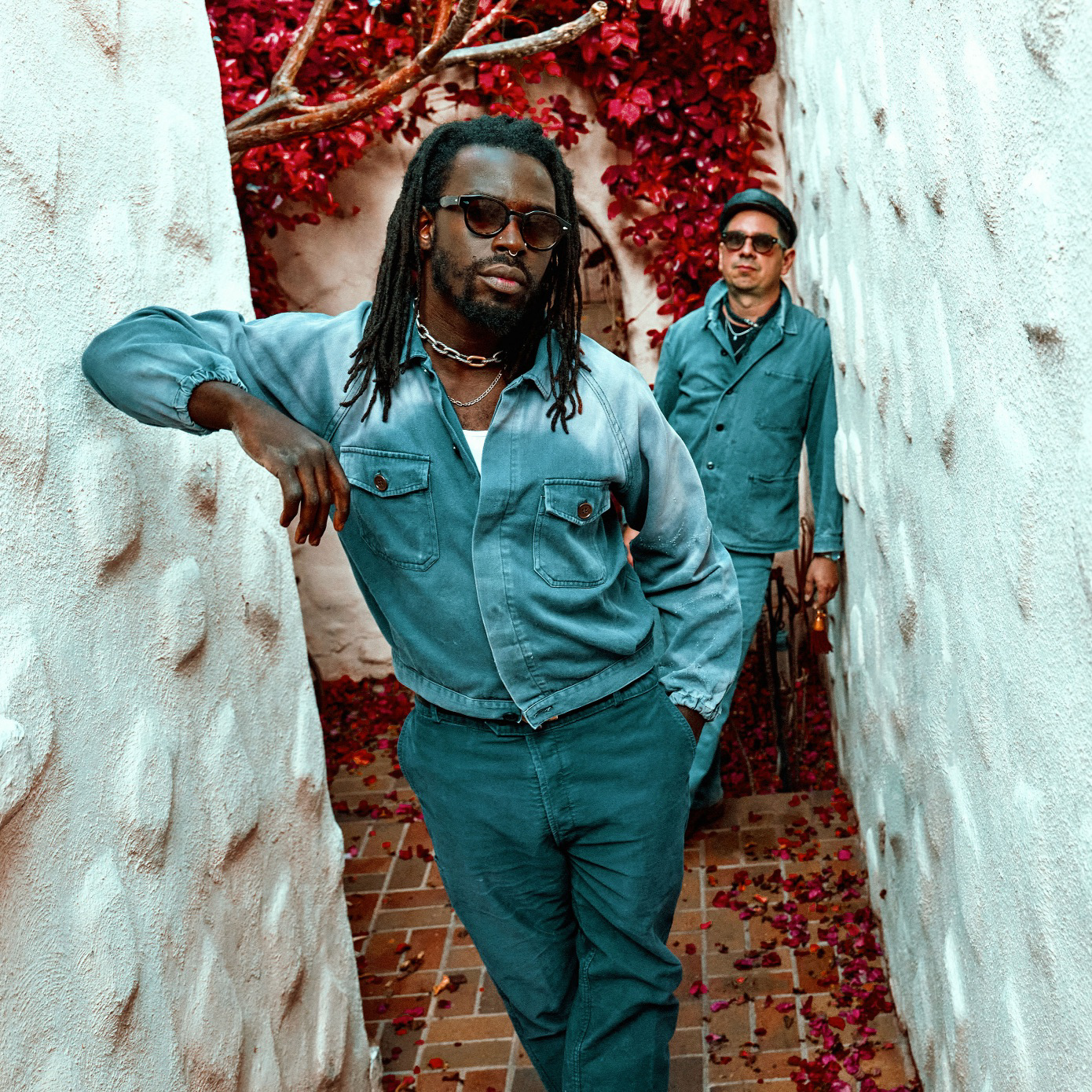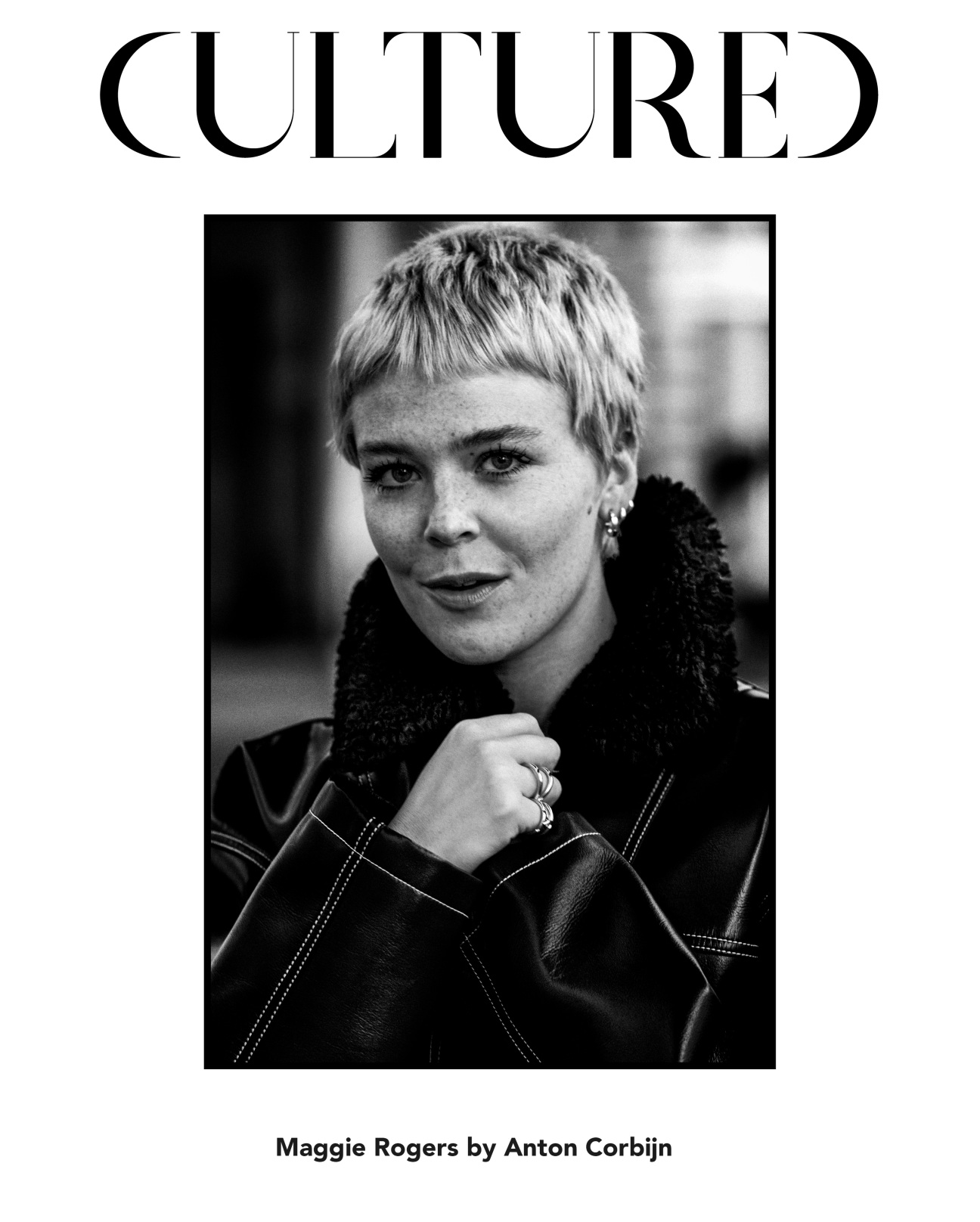
Maggie Rogers has always possessed a certainty of self. Earth signs tend to be that way—grounded in feeling, anchored by their beliefs, and occasionally stubborn. Her second studio album, Surrender, is as much a reaffirmation of that selfhood as it is a kind of rebirth. After all, the record takes its title from Rogers’s recent Harvard Divinity School thesis in which the singer-songwriter wrote about the role of spirituality in public gatherings, and, as she explains, “how we come together as a group in non-traditional spaces.” That for Rogers has always been music.
Compared to her earlier work, Surrender, which was released this July, is grittier and more full-throated. “Records are like skins you shed,” she says. “And I'm already growing the next one.” The title, like her hair, is shorter, too. “I wanted something less wordy,” she jokes, referring to her synth-pop studio debut Heard It in a Past Life. Rogers wrote and recorded the sophomore album at her parents’s house in Maine where she lived in seclusion during the pandemic. Never before in her nascent but explosive career had she spent so much time alone—and the silence sparked a need to make noise. “I was so hungry for festivals and shows,” she recalls, alluding to the heavy percussion that reverberates across Surrender’s 12 tracks. “It was made to play live.” That yearning manifests on tracks like “Shatter”—which features soaring vocals from Florence Welch—and the early-aughts alt-rock ballad “Want Want,” both of which call for the crush of a live audience. “There was a lot of energy and frustration in the world at that time…I was trying to do my best to capture it all.” While processing those years is an ongoing challenge, Rogers is intent on doing the work. “It's a privilege to soundtrack someone else's life,” she says. “Life is so much richer when it has the right song playing with it, and to have a presence in some of those intimate moments is really special.”
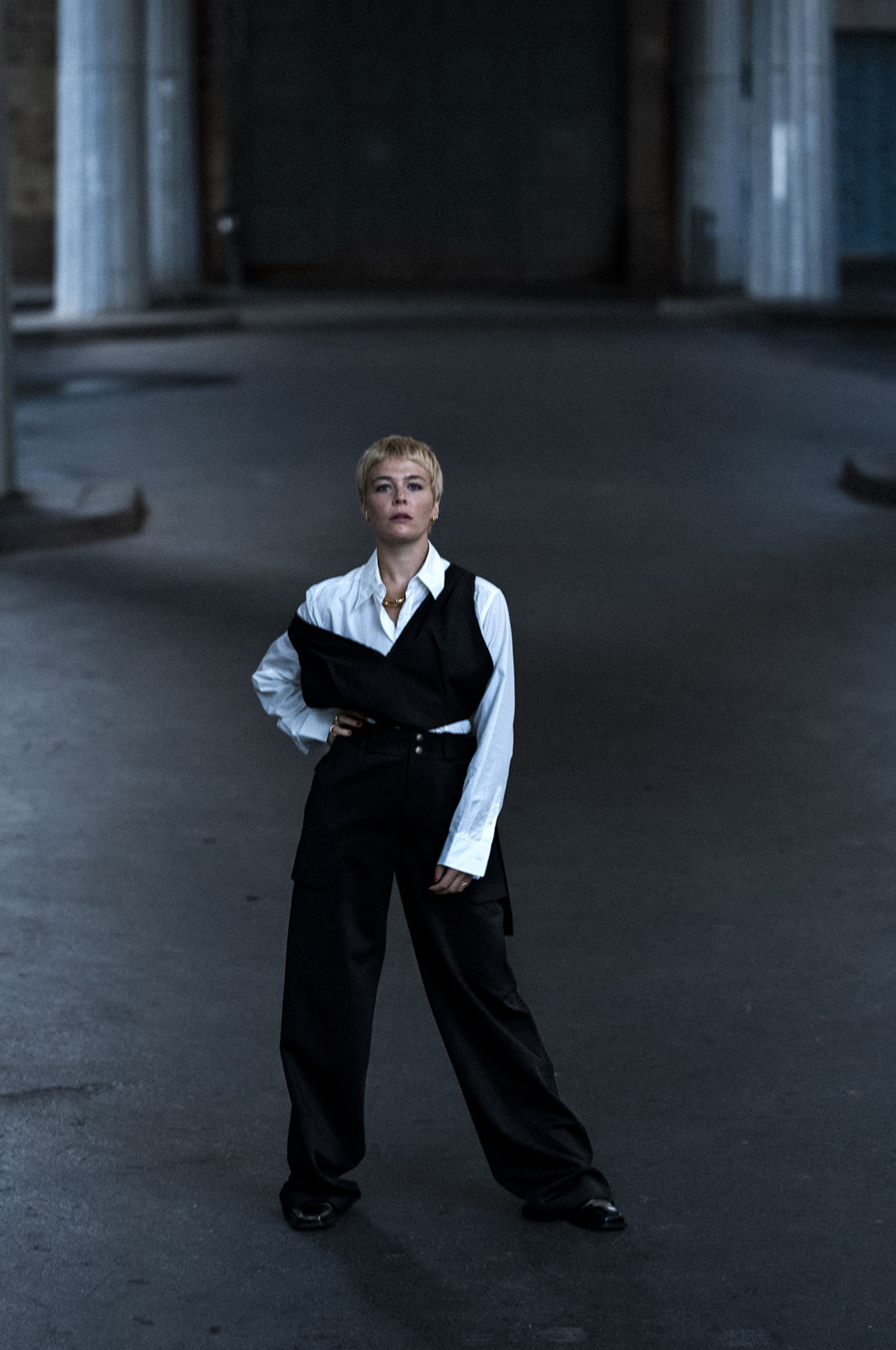
Rogers approaches her work with an intention and wisdom beyond her 28 years. Born in rural Maryland to a nurse and a car dealer, she grew up listening to folk music and playing the banjo before touching down for college in New York. While taking classes and interning at fashion magazines in 2016, she managed to get a demo recording of her breakout song, “Alaska,” in front of Pharrell Williams. A video of the legendary producer’s visceral reaction to the song went viral, catapulting Rogers to overnight online success. She signed to Capitol records a year later, releasing her critically acclaimed EP Now That the Light Is Fading and her debut full length album—which snagged her a Grammy nomination for best new artist—in quick succession. Despite the accolades, she remains insistently grounded and accessible, something that has as much to do with her warp-speed ascent as with her music itself.
When it comes to songwriting, Rogers is meticulous. Every single note on Surrender, she insists, was tweaked and re-written until each melody was just right. This dedication to the craft is apparent in her strong industry relationships—she speaks about collaborators like the Grammy and Oscar-winning musician Jon Batiste and the bedroom pop singer Claud with equal admiration, calling each an “absolute hero.” Both artists worked with her on the track “I’ve Got a Friend,” an intimate process that, for Rogers, is one of the best parts about making music—second only to performing it live.
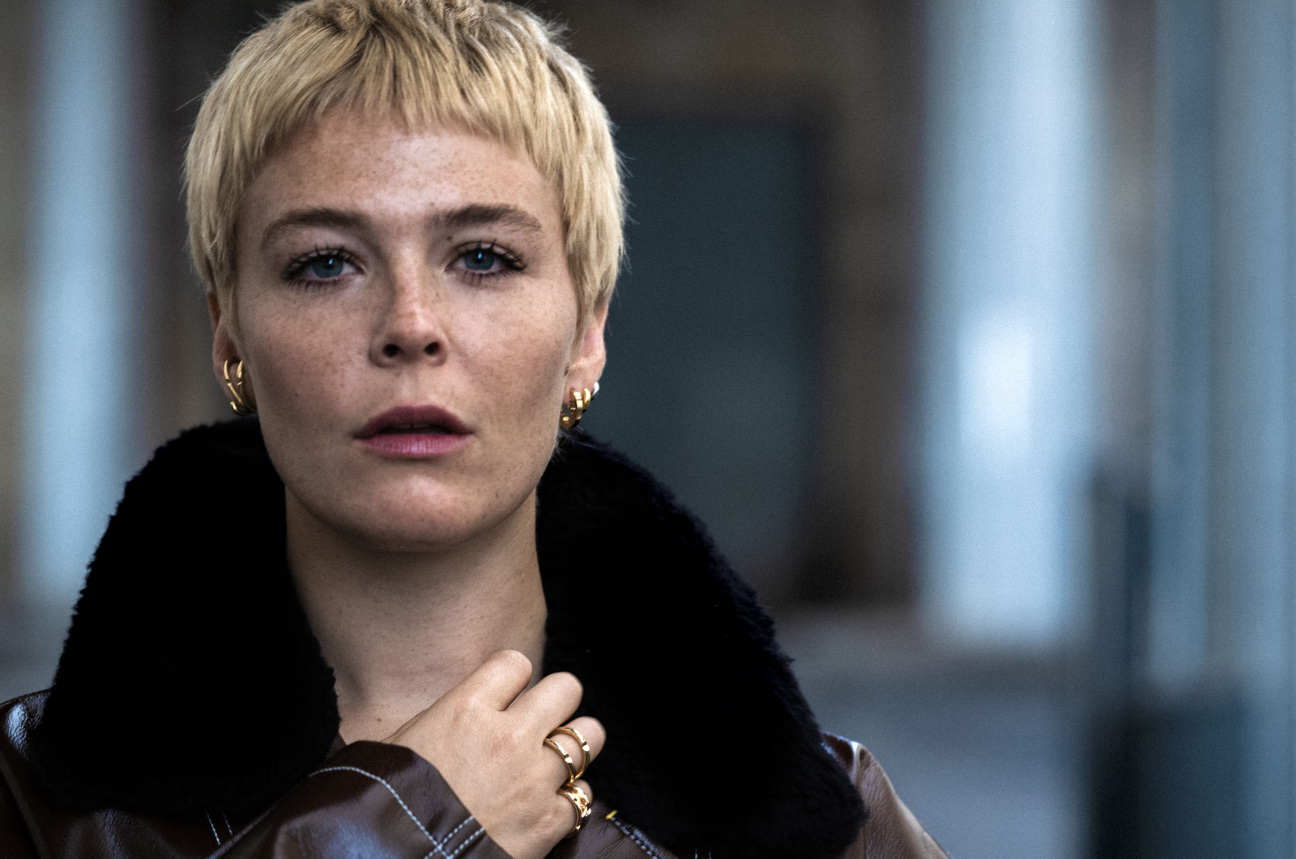
In just a few months, she’ll finally get the chance. When her recently announced U.S. tour, “Feral Joy,” kicks off in February of 2023, Rogers will share these long-contained feelings with her fans—and maybe even put some of her divinity school learnings about the transcendent power of public gatherings into practice. “I really wanted a place where I could be new at something, a community of people that had nothing to do with my work in music.” She says of her Master’s degree. “After the pandemic, I was just like, somebody tell me where to be."
Now, she knows exactly where that is—on tour. “I can't wait to be on the road with this wonderful group of people. I can't wait to see real fans, because I love this record so much and I'm so proud of it,” the artist says. And she should be: she worked tirelessly on nearly 100 songs for this record, winnowing the number down to just under a dozen. “I feel like I've built this beautiful house and haven't gotten to live in it. It's one thing to spend a year writing and thinking about a topic, and it's another to translate it to the real world,” she continues with a hint of nervousness, about how her live audiences will respond to this new phase of her life.
Relistening to Surrender, it’s clear just how badly Rogers needed this kind of challenge and release—first in the studio and soon on the stage. “It was really hard to make,” she admits. “There was all this tangled-ness. Now that it’s out of my body, I feel so much lighter.” When asked what she’s surrendering to, the artist rejects the question. “Surrendering has always been a negative thing,” she says. “But to me, it’s about feeling everything there is to feel, and being open to life.”
All clothing and accessories Louis Vuitton Fall/Winter 2022
Makeup by Celia Burton
Hair by Kevin Roux
Nails by Sally Derbali
Casting by Nicola Kast
Produced by Farago Projects
Photo assistant: Anja Graber

